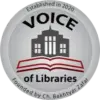Encyclopedia
An encyclopedia is a comprehensive reference work that provides information on a wide range of subjects, usually arranged in alphabetical order. It is a type of reference book that is intended to provide general knowledge about a subject, rather than in-depth, specialized information. Encyclopedias can be general, covering a wide range of subjects, or specialized, covering a particular field or area of study. They may include articles, definitions, illustrations, maps, and other types of information, and they are often written by experts in the field. Encyclopedias can be published in print or digital format, and they are used as a resource for research, learning, and general knowledge.

